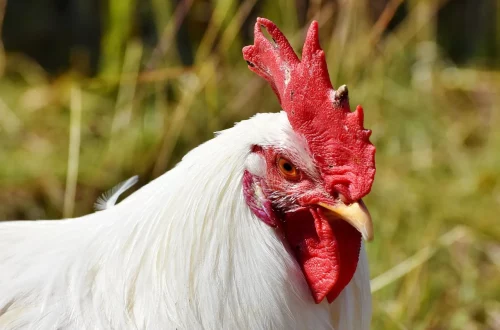
Melatonin for Dogs Dosage: A Complete Guide for Pet Owners
Melatonin is a naturally occurring hormone that plays a crucial role in regulating sleep-wake cycles in both humans and animals. For many pet owners, ensuring their dogs have a good night’s sleep is just as important as any other aspect of their care. The use of melatonin for dogs has gained popularity as a potential solution for various sleep-related issues, anxiety, and even certain behavioral problems.
As more pet owners seek to improve their dogs’ quality of life, melatonin supplements have emerged as an appealing option. However, with the increase in interest comes a need for accurate information regarding proper usage, dosage, and potential effects. Understanding how melatonin can benefit dogs, along with the appropriate dosage guidelines, is essential for any pet owner considering this supplement for their furry friend.
This article aims to provide an in-depth look at melatonin use in dogs, focusing on dosage recommendations, safety, and the potential advantages it may offer. By equipping yourself with knowledge, you can make informed decisions about your dog’s health and well-being, ensuring that they lead a happy and comfortable life.
Understanding Melatonin and Its Effects on Dogs
Melatonin is a hormone primarily produced by the pineal gland in response to darkness. It helps regulate the sleep cycle by signaling to the body when it is time to sleep and when to wake up. In dogs, melatonin works similarly, influencing their circadian rhythms and promoting restful sleep.
The use of melatonin in dogs is often recommended for various reasons. Many pet owners turn to melatonin to help alleviate anxiety, particularly in situations that may be stressful for their pets, such as thunderstorms, fireworks, or separation anxiety. The calming effects of melatonin can help dogs cope with these situations, making it easier for them to relax and feel secure.
Moreover, melatonin may also be beneficial for dogs suffering from sleep disturbances. Just like humans, dogs can experience insomnia or disrupted sleep patterns, which can lead to irritability and behavioral issues. By promoting a more consistent sleep schedule, melatonin can help address these problems, allowing dogs to feel more rested and rejuvenated.
It is important to note that while melatonin is generally considered safe for dogs, it is not a one-size-fits-all solution. Each dog is unique, and their response to melatonin can vary based on factors such as age, breed, and overall health. Therefore, it is crucial for pet owners to consult with a veterinarian before introducing melatonin into their dog’s routine to ensure it is the right choice for their specific needs.
Choosing the Right Dosage for Your Dog
Determining the appropriate dosage of melatonin for dogs can be a complex process, as it depends on several factors, including the dog’s size, weight, and specific health conditions. Generally, a common guideline suggests administering 1 mg of melatonin for every 10 pounds of body weight. However, this guideline can vary, so it is essential to consult with a veterinarian for personalized recommendations.
For smaller dogs, a lower dosage may suffice, while larger breeds may require a higher dosage. It’s important to start with a conservative approach, administering the lower end of the dosage range and observing how your dog responds. If necessary, adjustments can be made gradually to find the optimal dosage.
The timing of administration is also crucial. Melatonin should typically be given 30 minutes to an hour before the desired sleep time or before a stressful event. This allows the hormone to take effect, helping to induce a sense of calm and relaxation in your dog.
Additionally, pet owners should be aware that melatonin is available in various forms, including tablets, capsules, and liquid solutions. Each form may have different concentrations, so it is important to read the product labels carefully and follow your veterinarian’s guidance on which formulation is most suitable for your dog.
Lastly, while melatonin is generally safe, potential side effects can occur. Some dogs may experience drowsiness, gastrointestinal upset, or changes in behavior. Close monitoring is essential during the initial phase of melatonin administration, and any unusual symptoms should prompt a consultation with your veterinarian.
Benefits of Melatonin for Dogs: What Pet Owners Should Know
The benefits of melatonin for dogs extend beyond mere sleep improvement. Its calming properties can provide significant relief for dogs dealing with anxiety-related issues. For instance, dogs that become anxious during car rides, thunderstorms, or when left alone may benefit from melatonin supplementation. By inducing a state of calm, melatonin can help these dogs manage their fears and anxieties more effectively.
In addition to anxiety relief, melatonin can also support dogs undergoing stressful situations, such as surgery or recovery from illness. The calming effects can help ease their distress, making the recovery process smoother. Furthermore, melatonin may improve the overall quality of life for older dogs experiencing cognitive decline, as it can help regulate their sleep patterns and enhance their mood.
Another interesting benefit is its potential role in supporting the immune system. Some studies suggest that melatonin may have antioxidant properties, which can help combat oxidative stress and support overall health. This can be particularly beneficial for aging dogs or those with underlying health conditions.
Despite these advantages, pet owners must remember that melatonin is not a substitute for comprehensive veterinary care. It should be used as part of a broader approach to managing your dog’s health and well-being. Regular check-ups, a balanced diet, and appropriate exercise are all essential components of keeping your dog healthy and happy.
Furthermore, some dogs should avoid melatonin altogether, particularly those with certain health conditions or those taking specific medications. Always consult with a veterinarian to ensure that melatonin is a safe and beneficial option for your dog.
Safety Precautions and Considerations When Using Melatonin
While melatonin is generally considered safe for dogs, pet owners must take certain precautions to ensure their furry friends’ safety and well-being. First and foremost, it is crucial to consult with a veterinarian before starting any new supplement, including melatonin. A veterinarian can provide tailored advice, taking into account your dog’s health history and any underlying conditions.
Additionally, pet owners should always choose high-quality melatonin products specifically formulated for dogs. Human-grade melatonin may contain additional ingredients that could be harmful to pets. Always read labels carefully and opt for products that are free from artificial additives and preservatives.
Monitoring your dog’s response to melatonin is also vital. As mentioned earlier, starting with a lower dose and gradually increasing it allows pet owners to observe any side effects or adverse reactions. If your dog exhibits unusual behavior, such as excessive lethargy, vomiting, or signs of agitation, discontinue use and consult your veterinarian immediately.
Another important consideration is the timing and environment in which melatonin is administered. Creating a calm and soothing atmosphere can enhance the effectiveness of melatonin. Ensure that your dog’s sleeping area is comfortable and free from distractions, allowing them to relax and benefit from the supplement.
Finally, be aware of potential interactions between melatonin and other medications your dog may be taking. Some medications, particularly those affecting the central nervous system, may interact negatively with melatonin. Always provide your veterinarian with a complete list of your dog’s medications to avoid potential complications.
In conclusion, while melatonin can be a valuable tool for managing your dog’s sleep and anxiety, it should always be used with caution and under professional guidance.
**Disclaimer:** This article is not intended as medical advice. For any health-related concerns regarding your dog, please consult with a qualified veterinarian.




